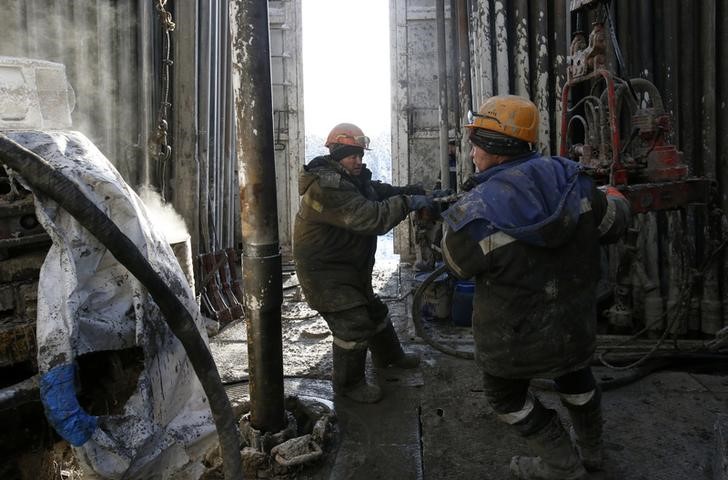By Peter Nurse
Investing.com -- Oil prices pushed higher Tuesday after the U.S. announced it will release 50 million barrels of crude from its reserves to cool the market, confirming what had been expected for some days.
The White House released a statement earlier Tuesday saying that it would add supply to the global market from its Strategic Petroleum Reserve, in a combination of a loan and a sale, in concert with China, Japan, India, South Korea and Great Britain.
By 9:20 AM ET (1420 GMT), U.S. crude futures traded 1.4% higher at $77.83 a barrel, while the Brent contract rose 1.6% to $80.94. Both benchmarks hit their lowest levels since the start of October at the start of the week, in expectation of such a move.
U.S. Gasoline RBOB Futures were up 1.1% at $2.2840 a gallon.
This move by some of the globe’s major consumers follows the decision by the Organization of the Petroleum Exporting Countries and their allies, a group known as OPEC+, to only gradually increase production after the sharp cuts in output at the start of the pandemic.
It also marks a challenge to the hold these producers have on the market, and could prompt a response when they next meet in early December.
The United Arab Emirates Energy Minister Suhail Al-Mazrouei said on Tuesday said that the UAE sees "no logic" in increasing its own contributions to global markets at the moment, while a Russian spokesman said the Kremlin remained committed to fulfilling its obligations and that President Vladimir Putin had no plans to contact OPEC+ partners.
“There is a growing risk that OPEC+ responds to an SPR release by pausing planned supply increases,” said analysts at ING, in a note.
Additionally, “one still needs to question whether there really is a need for this action. Covid concerns are growing once again, particularly with stricter restrictions being implemented in parts of Europe, whilst the oil balance is expected to be much more comfortable as early as the first quarter of next year,” ING added.
On Monday, Austria became the first Western European country to reimpose a national lockdown in the face of surging coronavirus infections. Belgium and the Netherlands have introduced partial restrictions, and expectations are growing that Germany, the largest Eurozone economy, will soon follow suit.
Barclays raised its 2022 oil price forecasts earlier Tuesday as it expects a faster-than-expected inventory drawdown and cautious supply response to offset a modest surplus next year.
The bank raised its 2022 average price forecast by $3 to $80 and $77 per barrel for Brent and West Texas Intermediate, respectively.
